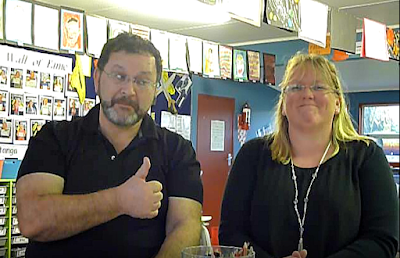21st Century Skills
Week 2 Digital Overview
What skills do our learners need in this ‘Knowledge Age’/time of hyperchange.
What is the relevance of the Key Competencies in the 21st Century with particular reference to the Innovative Teaching and Learning (ITL) research.
The key elements of the ITL research rubrics
- Collaboration
- Knowledge construction
- Self-regulation
- The Use of ICT for learning
- Skilled Communication
- Real-world problem-solving and innovation
The flipped preparation for this week was Grant Litchman's video 'What 60 Schools Can Tell Us About Teaching 21st Century Skills'
Discussion
What 60 Schools Can Tell Us About Teaching 21st Century Skills
Rate of change in our lives is so fast.
Programmes out of the box can be hard to adapt into schools - more of a mind set.
Why are we pushing our students to achieve above the requirements - if we slowed down the up wards push then we can broaden and enrich students learning - then we will have time to embrace new learning outside of the expected box.
Mindsets need to change, what are we trying to educate our students about.
Evidence based practice - deals with issues and finds a practical way forward.
Inquiry in to teaching practice needs to be purposeful and chosen by you, not something you are told to do.
Inquiry in to teaching practice needs to be purposeful and chosen by you, not something you are told to do.
How do 20th Century and 21st century skills differ?
Teacher was the fountain of all knowledge - the teacher is the facilitator/mentor
Teacher was the fountain of all knowledge - the teacher is the facilitator/mentor
Teacher workload - student learning
Class Structure - Flexible/adaptable
Class Structure - Flexible/adaptable
Change occurred because you were told to - change occurs because student need dictates it
No one right way to navigate change
Key points Grant Litchman's makes in his video: (*My added comments)
- Another school may have already solved your problem
- Educational change may be uncomfortable and complicated but it’s not hard (*Can be hard and difficult. Any change can feel uncomfortable, be complicated and difficult. It can seem frustrating and a real barrier. Lack of knowledge and the need to cut through assumptions. Can be difficult to move staff who don'e see the same picture as you - importance of have effective followers (Link back to the Tango Video from last week about different follower styles)
- Schools are becoming, creative, adaptive, permeable, dynamic, systemic, self-correcting (More schools are moving in this direction. Schools need to be self evolving as well as teachers as practitioners need to be self evolving - need to be responsive to change)
- The 5th sphere - the ‘cognitosphere’ - system of knowledge creation and management
- Where do we want to be? - Dewey, Montessori and Parker
- Problems:
- Anchors of time, space and subject, Dams and Silos (Especially in relation to Secondary Schools)
- Solutions:
- Teach into the unknown
- Self-evolving learners (Students need to be adaptive)
- Self-evolving organisations
- Education innovation: Preparing students for their future, not our past
- “If we teach today as we taught yesterday, we rob our children of tomorrow” - supposedly John Dewey (though in fact Dewey never actually wrote that!)
What are do I think are the most important skills in the 21st Central
- Resilience
- Flexible thinking
- Adaptability
- Communication skills
The 21st Century Skills that ITL (Innovative Teaching and Learning) decided were important. Do your thoughts align with these?
- Collaboration
- Knowledge construction
- Self-regulation
- Real-world problems / innovations
- ICT for learning
- Skilled Communication
I think the skills I recorded align along with ITL's skills (there is no one right answer)
Other ideas from the group
- Risk takers
21C Learning Design Rubrics
(Microsoft Partners in Learning)
(Microsoft Partners in Learning)
A learning activity is any task that students do as part of their school related work
This guide describes six rubrics of 21st century learning, each of which represents an important skill for students for develop:
- collaboration
- knowledge construction
- self-regulation
- real-world problem-solving and innovation
- the use of ICT for learning
- skilled communication
The description of each learning activity has three parts:
- an overview of definitions of key concepts and related examples;
- a rubric to help you assign each learning activity a number on a scale, according to how strongly it offers opportunities to develop a given skill;
- and a flowchart that shows how to choose the best number in each case.
Video Activity
- You need to be present
- Video needs to have and intro, message and conclusion in 40 seconds.


No comments:
Post a Comment